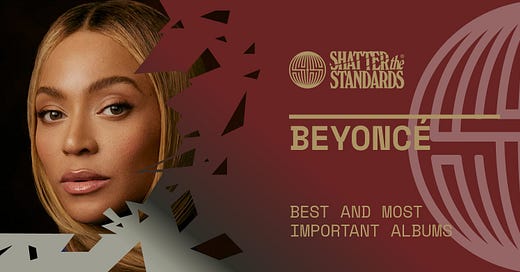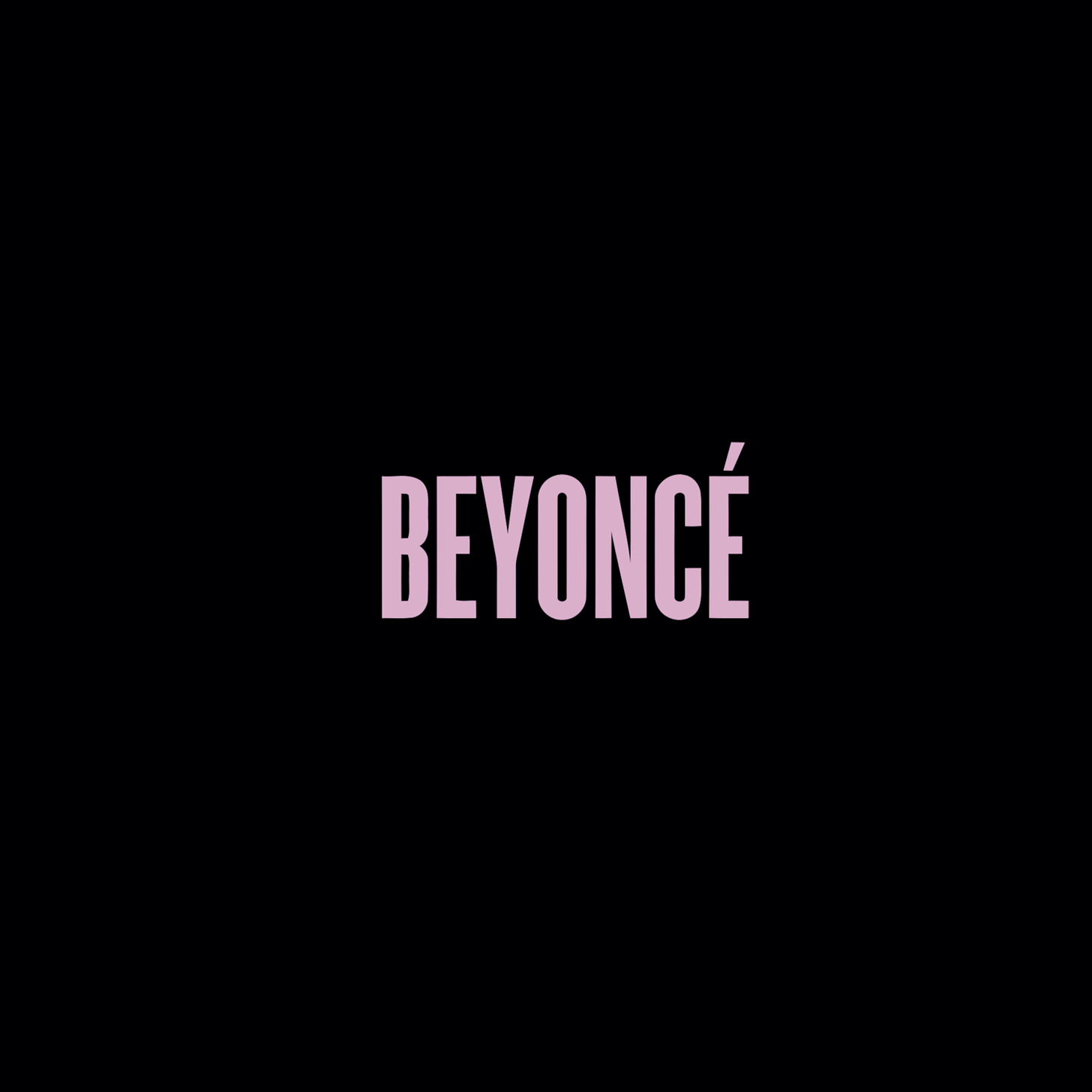Beyoncé’s Best and Most Important Albums
As her eighth studio album approaches, we revisit Beyoncé’s discography and see how it holds up.
She is the woman of absolute superlatives: No artist has made more Grammy nominations, top 10 chart placements, or more money than Beyoncé Knowles-Carter. With a career spanning over two decades, she has consistently delivered groundbreaking music that showcases her incredible vocal range, dynamic stage presence, and unparalleled artistic vision. From her early days as the lead vocalist of Destiny’s Child to her solo career, Beyoncé has amassed a devoted global fan base and numerous accolades, including 28 Grammy Awards, making her the most awarded woman artist in Grammy history.
Beyond her musical achievements, Beyoncé has also made a significant impact as a cultural icon and role model. She has used her platform to advocate for social justice, empowerment, and representation, often incorporating themes of feminism, racial equality, and self-love into her music and performances. Her visual albums, such as Lemonade and Black Is King, have pushed the boundaries of storytelling and cinematography, cementing her status as a visionary artist. With her undeniable talent, work ethic, and commitment to using her voice for positive change, Beyoncé continues to inspire and influence generations of fans and fellow artists.
Essential
B’Day (2006)
Released on her 25th birthday, B’Day celebrates womanhood, self-empowerment, and the complexities of romantic relationships. Beyoncé’s vocals shine throughout the album as she effortlessly navigates through various genres, including funk, R&B, and hip-hop. Helmed by a team of renowned producers such as Darkchild, The Neptunes, Swizz Beatz, and Rich Harrison, it is characterized by its hard-hitting beats, infectious hooks, and vintage soul samples. This sonic landscape perfectly complements Beyoncé’s assertive and commanding presence as she delivers lyrics that unapologetically express her desires, frustrations, and triumphs. Her magnum opus showcases her growing confidence as a performer and songwriter, as well as her ability to challenge gender norms and expectations within the male-dominated music industry.
Lemonade (2016)
It appeared overnight in the digital Tidal ether. Unannounced. Without promo phase. No way, because the release is the ultimate promotion that puts the pop star in the spotlight. By the way, the idea is not wholly new. Beyoncé had already pumped her self-titled album on iTunes in 2013 without announcement. Drake, Kendrick Lamar, Rihanna, and Kanye West followed suit with their current releases (the latter two also exclusively on JAY-Z’s streaming service Tidal), and all achieved resounding success results. Beyoncé describes Lemonade as a “visual album.” The music is woven into a one-hour film that splits the boundaries of the video genre. It is a multi-layered pop epic that actively overwrites and rearranges its role in the hyper-mainstream. Beyoncé delivers vocally and shows all conceivable variants of her sound and vocal colors, but the compositions are often relatively low in surprise. Only in combination with the film does the sixth effort develop its impressive effect and offer a new basis for discussing egomania in the pop mainstream of 2016.
BEYONCÉ (2013)
Without any prior promotion, the album’s surprise release sent shockwaves through the music industry and redefined how artists approach album launches in the digital age. More than just a marketing strategy, however, her self-titled is a cohesive and deeply personal project that showcases the singer’s artistic growth and fearless exploration of new creative territories. Musically, it’s a diverse and adventurous album incorporating R&B, pop, hip-hop, and electronic music elements. The production is sleek and futuristic, with layered vocals, haunting harmonies, and unconventional song structures that keep things engaged. Beyoncé delves into themes of sexuality, feminism, motherhood, and self-empowerment, delivering her most honest and introspective work. The album’s visual component is equally impressive, with each track accompanied by a stunning music video that enhances the song’s narrative and emotional impact. This audio-visual approach creates a fully immersive experience that blurs the lines between music, film, and art, setting a new standard for what a modern album can be.
RENAISSANCE (2022)
It is evident that Beyoncé feels reborn after an emotional purification as she goes through on Lemonade. After the musical breakout from the corset of the low-ambitious pop diva, however, it would not feel right to force her back into that straitjacket. And so the RENAISSANCE, the rebirth, applies not only to the radiant image of one of the greatest pop stars in the world but primarily once again to the musical foundation on which she builds her seventh LP. She illustrated the importance of the representation of Black culture in Beyoncé’s art more than impressively with her “homecoming” performance. After two years of pandemic, an album like this sounds like the logical next step. The use of queer voice images, which would sound incredibly delightfully from the mouth of so many other pop stars, seems to Beyoncé like a sincere union with an essential part of her fanbase.
Rewarding
4 (2011)
4 marks a significant shift in Beyoncé’s musical style and thematic focus as she moves away from her earlier work’s high-energy, club-oriented sound and embraces a more mature, introspective approach. Pair that with its lush, retro-inspired soundscapes, incorporating 90s R&B, soul, and funk elements. This musical direction allows Beyoncé to showcase her vocals more nuanced and expressively as she tackles love, self-discovery, and female empowerment themes. The album’s lead single, “Run the World (Girls),” is a feminist anthem that sets the tone for the rest of the record, asserting Beyoncé’s position as a strong, independent woman. Other standout tracks, such as “I Care,” “I Miss You,” and “Best Thing I Never Had,” reveal a more vulnerable side to the artist as she explores the complexities of relationships and personal growth.
Supplementary
Dangerously In Love (2003)
After the other two members of Destiny's Child released their solo albums some time ago, the long-player now also comes from the actual star of the girl group. And in fact, Beyoncé surpasses fate again with Dangerously In Love. She mixes emotional R&B, soft hip-hop, and original gimmicks and brings it all to a high level with her fantastic, diverse voice. In contrast to ordinary Destiny's Child songs, Beyoncé sounds more soulful on her solo record, and you also notice differences in the lyrics, which can undoubtedly be because she put her hand in songwriting.
Inessential
I Am… Sasha Fierce (2008)
It is a double-disc album that attempts to showcase the duality of the artist’s persona. While the concept of exploring her alter ego, Sasha Fierce, is intriguing, the execution falls short of Beyoncé’s usual high standards. The album feels disjointed, with the two discs, I Am… and Sasha Fierce, lacking cohesion and a clear narrative thread. The I Am… portion of the album features primarily ballads and mid-tempo songs, highlighting Beyoncé’s vocal abilities but often relying on generic lyrics and formulaic production. On the other hand, the Sasha Fierce disc aims to showcase Beyoncé’s alter ego, a bold and sexually assertive persona. That’s not to say that I Am… Sasha Fierce is without its merits. Beyoncé’s vocal performances are consistently strong throughout, and the album produced several hit singles that remain fan favorites. However, compared to the rest of her discography, particularly her more recent, boundary-pushing works, I Am… Sasha Fierce feels like a transitional album that doesn’t quite live up to its full potential.










